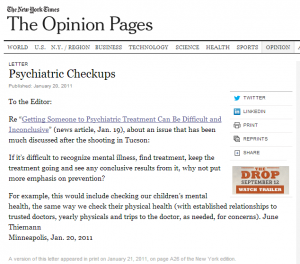 Now that your loved ones have been released from the locked part of the hospital, it’s time to think about family meals again. It might be best to start with a Sunday pork roast–something everyone can agree on. If you have a philosophical butcher, ask for a forgiving roast. A forgiving roast will give you time. In the two or three hours of roasting, the smells alone will pull all but the catatonic from their beds.
Now that your loved ones have been released from the locked part of the hospital, it’s time to think about family meals again. It might be best to start with a Sunday pork roast–something everyone can agree on. If you have a philosophical butcher, ask for a forgiving roast. A forgiving roast will give you time. In the two or three hours of roasting, the smells alone will pull all but the catatonic from their beds.
And this will restore your faith in the laws of physics–that you can still lift the heaviest of weights with the merest of aromas, that you can put food in the mouth of a void, that a dinner table ringed in bathrobes is nevertheless a circle. It’s possible that you had begun having doubts.
For quite some time, in fact, you had fears that a strange, gray matter had been collecting around your house. You’d seen something in the corners of mouths. But you had no words for it. When you tried to find them, you seemed to keep running up against other people’s words, such as “growing up,” “adolescence,” “pre-adolescence,” “stress,” etc. Even if those words didn’t quite seem to fit the gray, you knew that if you just turned a light on whenever you encountered it the shadows might disappear.
While a pork roast may or may not dispel all this grayness, it will at least keep a shrinking member of your family closer to the kitchen. Here, they may prove a bit of a nuisance–often watching everything you do and asking how many times you washed your hands before handling the pork, etc. You will possibly tire of responding in good-humored ways, such as, “Sweetie, I know you’re not well now and that part of your illness involves exaggerated fears about germs (which is ironic since another part of your illness involves not taking a shower), but do you think we could simply talk about the weather right now?”
At that point, if your loved one says, “Yes, I’m sorry to be a burden. Did you wash your hands before you touched the pork?” you might be tempted to turn around with a knife. You might also be tempted to say, “Listen, sweetie, if you drive me into the looney-bin, there will be no one here to cook you a pork roast.”
You will probably have sent your loved one back to their bedroom with this statement, which may or may not buy you a little peace and quiet in the kitchen. Though you can turn the radio on and pour yourself a glass of wine or whiskey, you may not be able to forget about the gray or pretend that it wasn’t always there. For one thing, your loved one has just become a clump again somewhere in a faraway universe.
And there is nothing fun about washing celery, slicing onions, and opening cans of olives when a curled shape lies on a bed somewhere, not quite alive enough to kill themselves.
This might be a curled shape who, on a different day, could cause a police officer to call for seventeen squad cars as back-up. But the great thing about a pork roast is that it will gather all the shapes and shadows in one place. At the table, you will be commingling staff and patients. And this will make certain staffing-to-patient ratios apparent. Nevertheless, you will still be a family for one fleeting moment.





